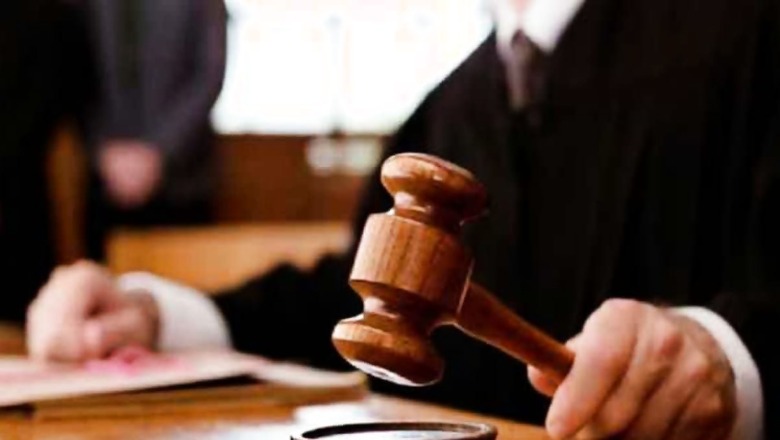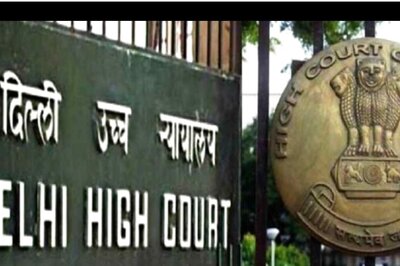
views
Most recently, India witnessed artificial intelligence (AI) knocking on the doors of its apex court with an AI-backed transcription service piloted to translate court proceedings into text. On an international scale, the impact of AI on the legal field appears to be creeping more steadily, with the rise of AI-powered automation systems such as Luminance, which ensures the effective drafting and reviewing of contracts amongst its many functions. Pushing the envelope further, a judge in the First Circuit Court of Colombia relied upon ChatGPT to deliver a judgement in a case concerning the right of an autistic child to receive coverage for medical treatment.
All of the above-mentioned developments beg the question of what the impact of AI on legal professionals will be. There is a widespread fear that AI may replace or reduce dependency on lawyers. These fears were further accentuated when Allen & Overy, a leading international law firm integrated Harvey, an AI platform, into practice. However, let us see, to what extent the above hypothesis holds true.
The interplay of AI with a legal professional is truly remarkable. Traditionally, the hallmark of any legal professional was touted to be their command over the law, knowledge of precedents, and the uncanny ability to cite statutory provisions, oft verbatim. However, these are the very notions that AI appears to be challenging and, in some cases, substituting. The ability of AI to store large amounts of data and process it rapidly ensures that it can shed light upon complex questions of law in a matter of seconds. While doing so, not only does it provide the legislative framework of a particular provision but also cites all the leading cases relating to that provision in a particular jurisdiction.
Further, when it comes to drafting documents such as a defamation notice or a tenancy agreement, the same can be drafted in a matter of minutes by taking recourse to a chatbot such as ChatGPT. Even while dealing with regulatory compliances or due diligence, AI has the potential to swiftly process large volumes of data and review standard form contracts more efficiently than lawyers themselves. This may effectively reduce the lawyer’s task to look at the bigger picture and achieve strategic objectives for the client.
At first glance, these developments may have the potential to raise alarm bells on the future of legal professionals, however, this may not hold to be entirely true. Although documents produced by chatbots may be effective, in many cases, they can serve as a starting point for a first draft. This is because AI systems are machine learning systems which may not understand the intricacies of factual scenarios as effectively as a lawyer would. Neither will these systems be able to comprehend the commercial and financial realities the client grapples with. Most importantly, what AI cannot seem to replace is the all-integral human touch, the importance of which cannot be stated but can only be illustrated.
For example, subjective considerations such as the nuances of the working of a court including the disposition of judges cannot be predicted by machine learning software. Or, on the happening of a particular incident, AI may showcase the various remedies that may be available to an individual, but only a human brain can effectively identify the remedy which will suit the individual’s objective. Moreover, when it comes to adjudication of disputes, AI, with all its inherent biases, may not be able to replace the discretion possessed by a judicial authority as to whether relief should be granted or not.
Therefore, the inherent qualities possessed by legal professionals which AI cannot replicate will continue to be the ability to read between the lines, separate the wheat from the chaff, come up with ingenious arguments, and understand the environment in which the law operates. And, to take this a step further, AI may be able to rely upon existing precedents and provisions, but a question remains as to whether it will be able to develop the law as humans have.
Thus, the writing on the wall is clear. Although AI may not replace lawyers entirely, it will certainly reduce the dependency on lawyers and a number of elementary tasks may be outsourced to AI. In the coming years, we may also witness an interesting trend where the number of lawyers hired overall may decrease but the demand for competent lawyers who can negotiate effectively or are skilled in the art of court craft will continue to remain high. And, with the advent of word predicting legal search engines which use a deep learning algorithm to analyse and understand the context of queries, the focus will shift to asking the right questions rather than searching for the right answers.
On a concluding note, at present, AI functions more as a tool to supplement the productivity of an individual. And, with the multiplicity of benefits offered by AI, it may be beneficial for legal professionals to perceive it as a friend rather than a foe and embrace the advantages by treating it as a colleague rather than an adversary. However, the utilisation of AI in law offices and chambers, as they function today, is merely the tip of the iceberg.
The shape that AI will adopt and the space that it will create for itself are questions that remain unanswered. Therefore, the interplay between AI and the legal profession still presents itself as a large question mark. Will disputes between individuals be adjudicated entirely by AI? Will machine learning software replace lawyers engaged in regulatory practice? Will algorithms go so far as to decide questions concerning fundamental rights and human liberty? Will the adjudication of minor uncomplicated disputes be relegated to AI? Pose this question to ChatGPT and it will reassuringly tell you that it is unlikely to replace lawyers and their “human judgment and expertise.”
Regardless, the future infrastructure of Bar and Bench remains uncertain, and this is a question which only time will answer.
The authors are L.L.M. candidates at the University of Cambridge. Views expressed are personal.
Read all the Latest Opinions here
















Comments
0 comment